Games are the perfect medium for the moment for music and art, able to work in the midst of pandemic and echoing the dystopias around them. And oh yeah, they’re also something you might want to play.
It’s also hard not to look at what’s happening in indie gaming and wonder if we’ll see more crossover with the music and live visual worlds. Sure, there’s been a festival planned in Minecraft, Travis Scott showing up in Fortnite. But as the album and live businesses both collapse at once, games start to look like a viable platform themselves, for the visual artists and musicians now unable to play to audiences. And games are able to self-reflexively comment on computer interaction itself – not just with a lyric or some liner notes, but in-band in the medium. sometimes to even comic effect.

A number of recent underground games have been uniquely able to critique online media, artificial intelligence, and post-human communication in ways you can’t do with words. They create worlds-within-worlds – playgrounds that parody in miniature our phones and computers and apps, and imagine speculative futures. But you can actually interact with those recreations, which can be oddly moving.
And while club acts focus on pushing 3D dazzle, these creations are often intentionally and even ironically regressive and retro. In gaming, the 8-bit and vaporwave music crazes just didn’t end. They’re detailed enough as to be love letters to the fallen aesthetics of the 90s. So let’s take a look.
Left on Read
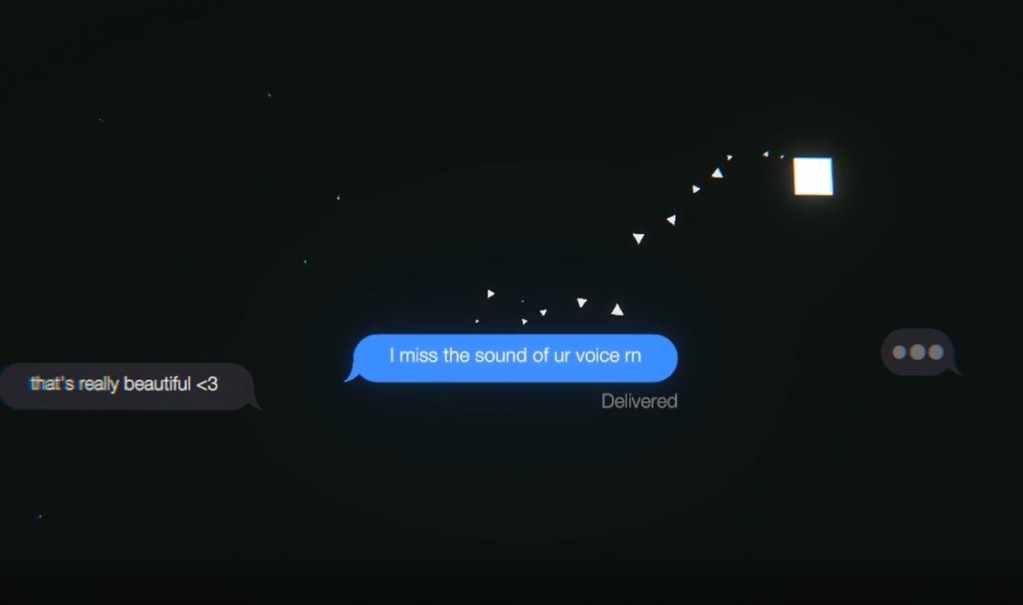
Left on Read is a free-to-play game released just as the world entered the first COVID-19 lockdowns. It’s sweet and unassuming, centered on the interactions of a couple of first-year college students. But it’s insightful in attention to detail – the stuttering rhythm of iMessage dialog and pregnant pauses. It’s interesting to read the reviews – basically both those who loved it and people who hated it each fixated on its realism. There’s not much gameplay here, but what makes it musical is its attention to the phrasing between messages – a kind of choreographed messaging simulator.
Left on Read [macOS/Windows; Steam]
Developer: Weston Bell-Geddes
Eliza
Eliza is an interactive novel, told through recorded dialog and eerie, soulless painted frames. The name is an immediate giveaway to AI nerds, as it references the 60s text-based counselor program by MIT scientist (and AI critic) Joseph Weizenbaum. As a game, it’s a strange experience – you’re left just clicking through dialog you can’t change as you give “therapy” to patients, but that’s part of the point. Eliza is a biting portrait of the emptiness of the gig economy, the futility of “wellness” culture (particularly as expressed in apps), and the dark side of both America and tech in their desire to numb pain. Also for some reason, its most gamelike aspect is a viciously hard game of Solitaire (which also offers up the title’s only Steam achievement).
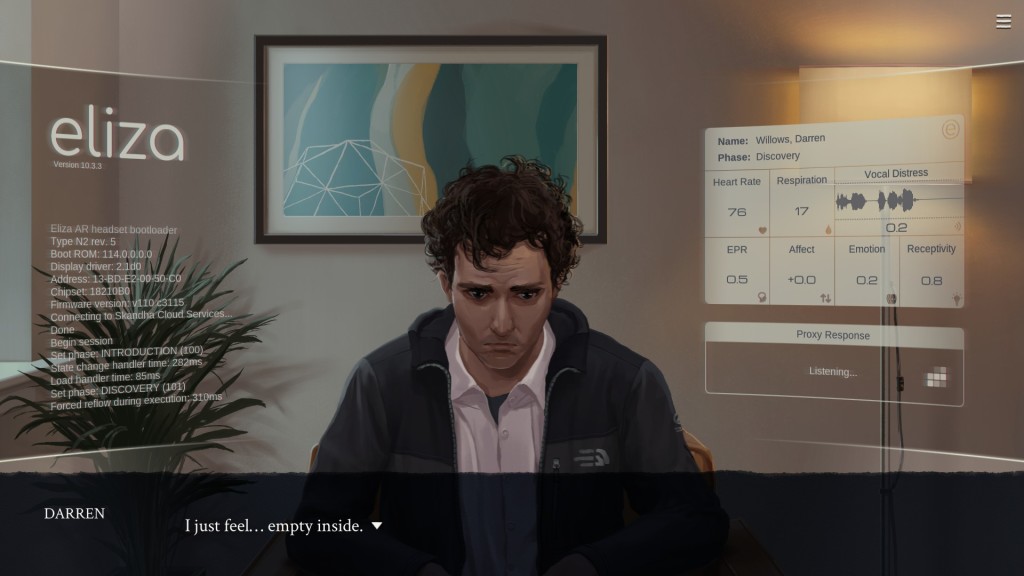
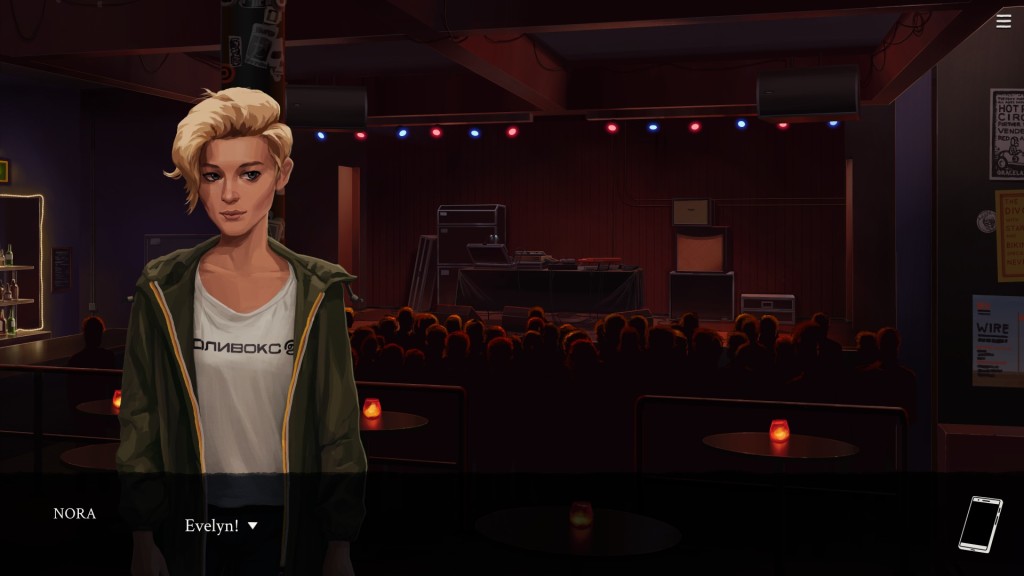
Eliza [macOS/Windows/Linux/Nintendo Switch; Steam]
Developer: Zachtronics
Seattle-based musician Matthew S Burns perfectly captures the sedated corporate futurism in a spare electronic soundtrack. And someone had the thought to give one of the characters a plausible live rig and interest in granular synthesis, plus a Polivoks t-shirt in Russian, so there’s that. Musical mobile anti-depressants, ready to score some Pacific Northwest promo videos:
Hypnospace Outlaw
I wrote about this game already, as it doubles as an authoring tool for music and fake, hyper-retro webpages. But Hypnospace Outlaw is more than just a vaporwave imaginary Internet to get lost in – though yeah, it definitely is that.
As you dig into the game’s mysteries and get to know its fictional characters and humor through their fake online identities, you also uncover a critique of late 90s tech culture. It’s a throwback to corporate control and censorship not through today’s unfathomably huge and monolithic Facebook and Twitter, but on a scale that can still be grasped. And by casting you as the moderator (see also Orwell), it puts you in the uncomfortable position of seeing that control through your own actions. It’s really a microcosmic tragedy of the Internet.
Yeah, and it has trippy generative music tools from designer and composer Jay Tholen:
Hypnospace Outlaw [macOS/Windows/Linux; Steam]
Broken Reality
Built in Unity, Broken Reality is perhaps the most vaporwave game ever produced. (Even Hypnospace Outlaw is subdued by comparison.) But don’t let the bits and bobs of old Internet Explorer versions fool you. With Facebook thumbs, Instagram cameras, and zombie mannequins glued to their phones, this rainbow-pixelated world has some unintentional commentary on the shallowness of our own world. And mostly it’s fun wandering around the impossibly low-fi visuals with all the requisite flying dolphins and Japanese pastiche.
The soundtrack – available on Steam as DLC – has hundreds of tracks.
This is the most vaporwave thing ever, even.
Also call me nuts, but I kind of admire that this game has a guide to the game’s glitches on Steam. A YouTube commenter called “Shareware Wizard” muses, “Vaporwave is nostalgia for the past of a future we were promised and never got.” Well, I mean, if you played Second Life, you pretty much did get it, but yeah.
Broken Reality [Windows; Steam]
Developer: Dynamic Media Triad
Orwell
Like Eliza and Hynospace Outlaw, Orwell puts you in the role of law and order, dystopian working grunt. You wind up poking through a Facebook clone (“Timeline”) and monitoring instant messages and phone calls. The gameplay is sometimes frustratingly linear (as with Eliza) – Hypnospace Outlaw makes you feel like you’re actually solving puzzles. But some of that absence of choice fits the narrative. What makes gameplay chilling is the creeping sense that you really are monitoring other people, with impacts on their lives. And as the details of how that information is leaked – an email link here, a social media comment there, and then a big data record lookup – you quickly realize how much intelligence you’re leaking about yourself right now. The game also quickly puts you in a position of moral conflict, rather than simply making the state a baddie.
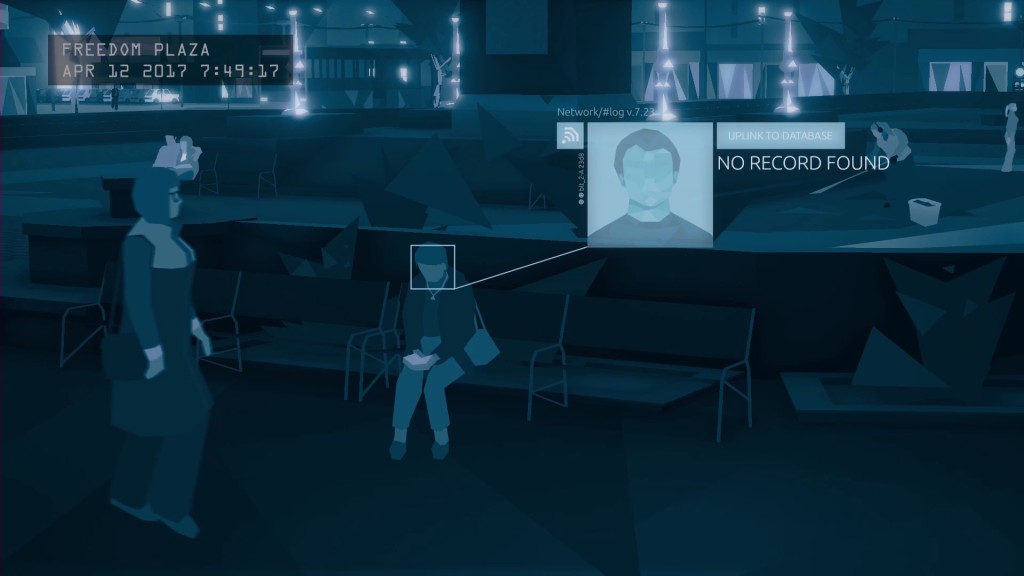

This sort of surveillance might well be done at this point by AI, but having you manually comb through simple details drives home the point. And maybe what’s most striking is how much this has become reality since the game’s 2016 debut.
Melbourne artist Matt Mclean / feeding ear nails the minimal sounds of a crisp, corporate, invisible surveillance world of the future. Everything is clean and swell.
Orwell [macOS/Windows/Linux, iOS; Steam]
Developer: Osmotic Studios
The Red Strings Club
Short, simple, gorgeous, and sweet, The Red Strings Club is a pixel art poem to transhumanism. What Eliza only hints at, this game plunges into – at least if you sync up with its wavelength, you get a poignant take on emotions and societal self-augmentation. And the gameplay mechanics are… well, extraordinarily weird, keeping with the theme here of games that express their general nihilism by leaving you with few actual choices. Here, that is interspersed with almost WarioWare-like minigames where you mix drinks and install emotional upgrades.
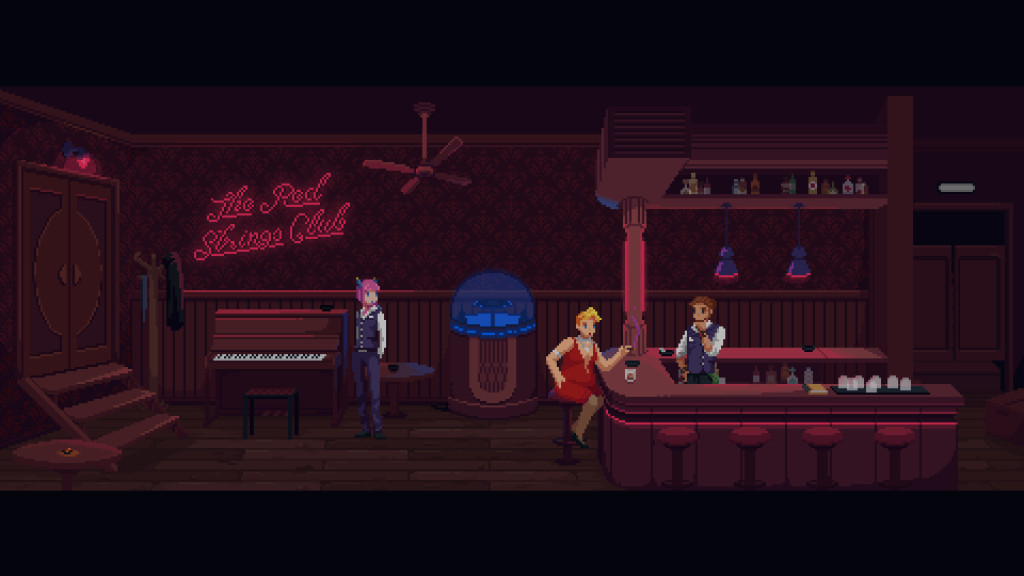
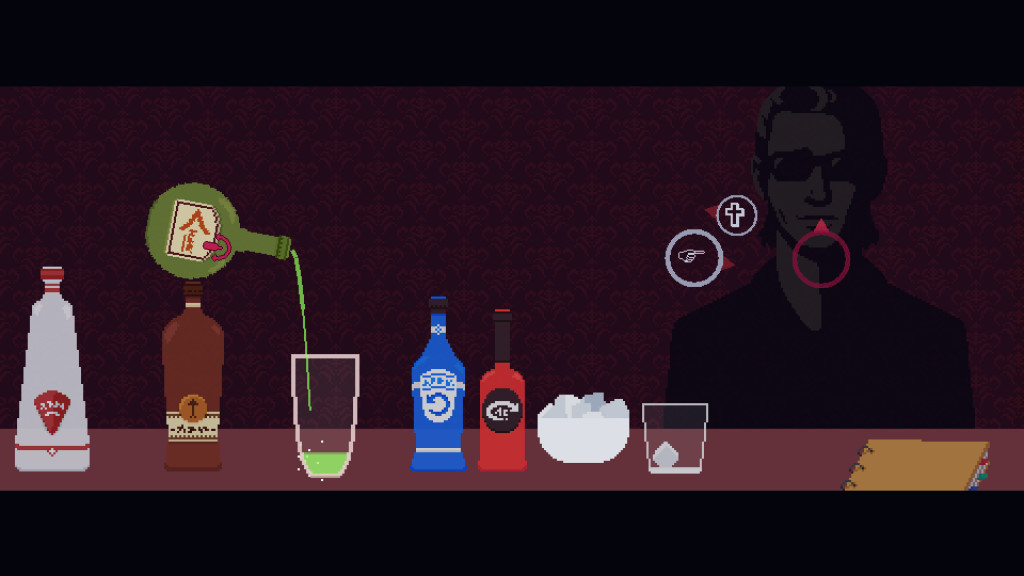
The whole result is more like another introspective graphic novel, and it demands some imagination from its audience more than even gameplay. But the noir cyberpunk melancholy of the soundtrack gets me every time. Sevilla’s fingerspit finds equal parts nostalgia, futurism, and reserve – a bit like one of those emotional cocktails.
Hanging on to personal moments of humanity and pain in an unmovable, doomed civilization … hmm, there’s some reason this seems to fit the zeitgeist. Can’t quite put my finger on it.
Jordi, Marina and Paula made this one.
The Red Strings Club [macOS/Windows/Linux, Switch; Steam]
Developer: Deconstructeam
VirtuaVerse
Forget the remakes. VirtuaVerse is finally a proper spiritual successor to LucasArts’ clever point-and-click adventure games of the 90s (think Day of the Tentacle and Monkey Island). And yeah, in the process, it refreshes 90s futurist tropes – technomancers, hackers, cryptoshamans, digital archeology, and VR – for a fresh breath of retrofuturism. As with the other titles (particularly Red Strings Club), VirtuaVerse hits home precisely because it is a believable near future as much as it is a hit of nostalgia. Sure, in the 90s we were more optimistic about this future coming. But now, these titles remind us that more of it is actually upon us.
And oh yeah, you can’t beat any title that packs this kind of gorgeous pixel art and gives you a soundtrack by Italian chip legend Master Boot Record. So you can bet there was an actual 486DX involved in the music production.
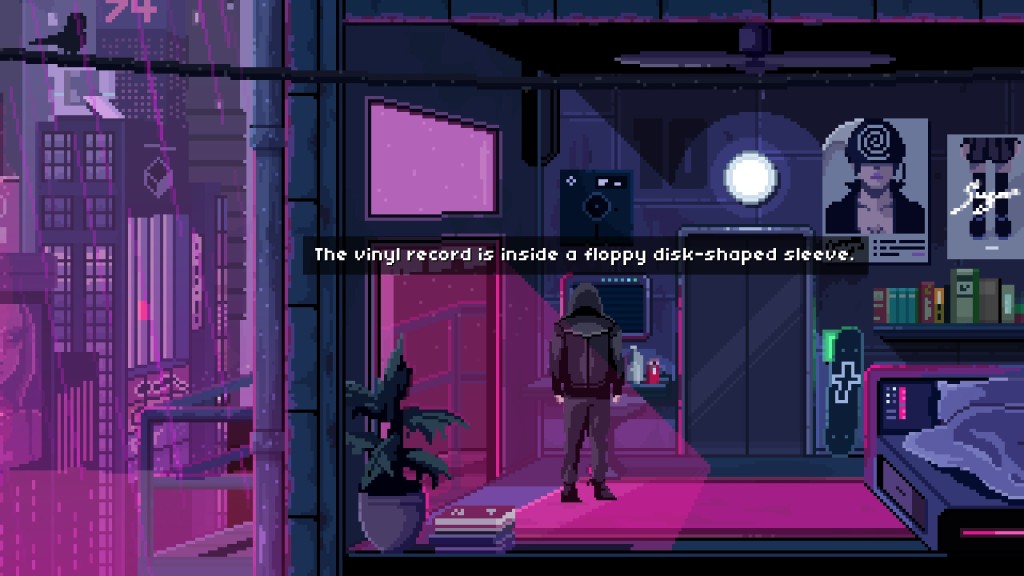
If you play only one game of this set, this game is the most actual game. You wander a cyberpunk Tokyo, trying to piece your life together. And I forgot how much fun it was banging your head against silly puzzles that require a fair bit of trial and error (like even getting out of your apartment in the opening scene). If you didn’t experience that in the LucasArts age, you might be lost but – don’t worry, someone did do a spoiler-free hint guide that mimics the hint systems in these games.
The score is still in pre-release form, but it is available as DLC on Steam.
VirtuaVerse [macOS/Windows/Linux; Steam]
Developer: Theta Division